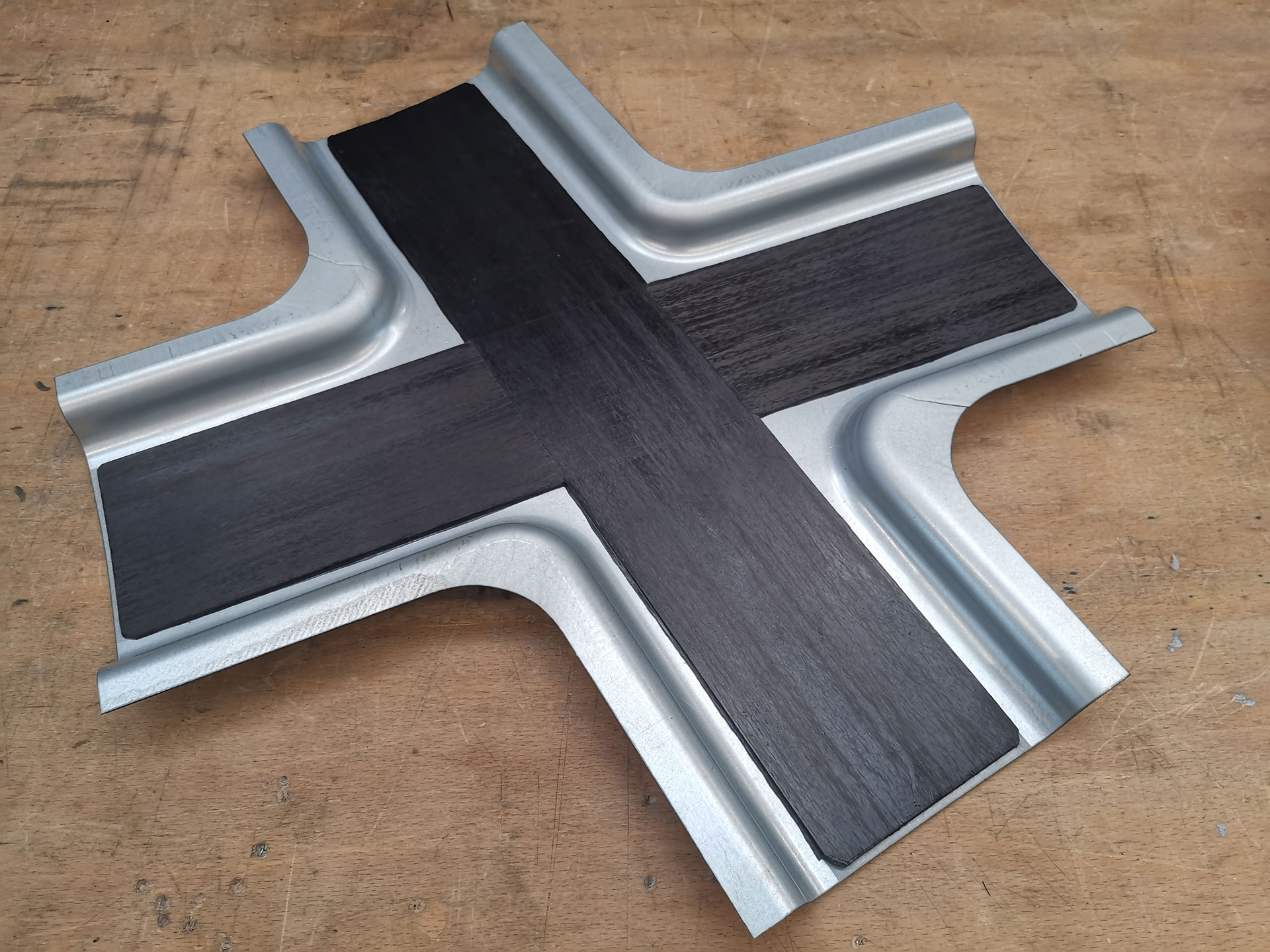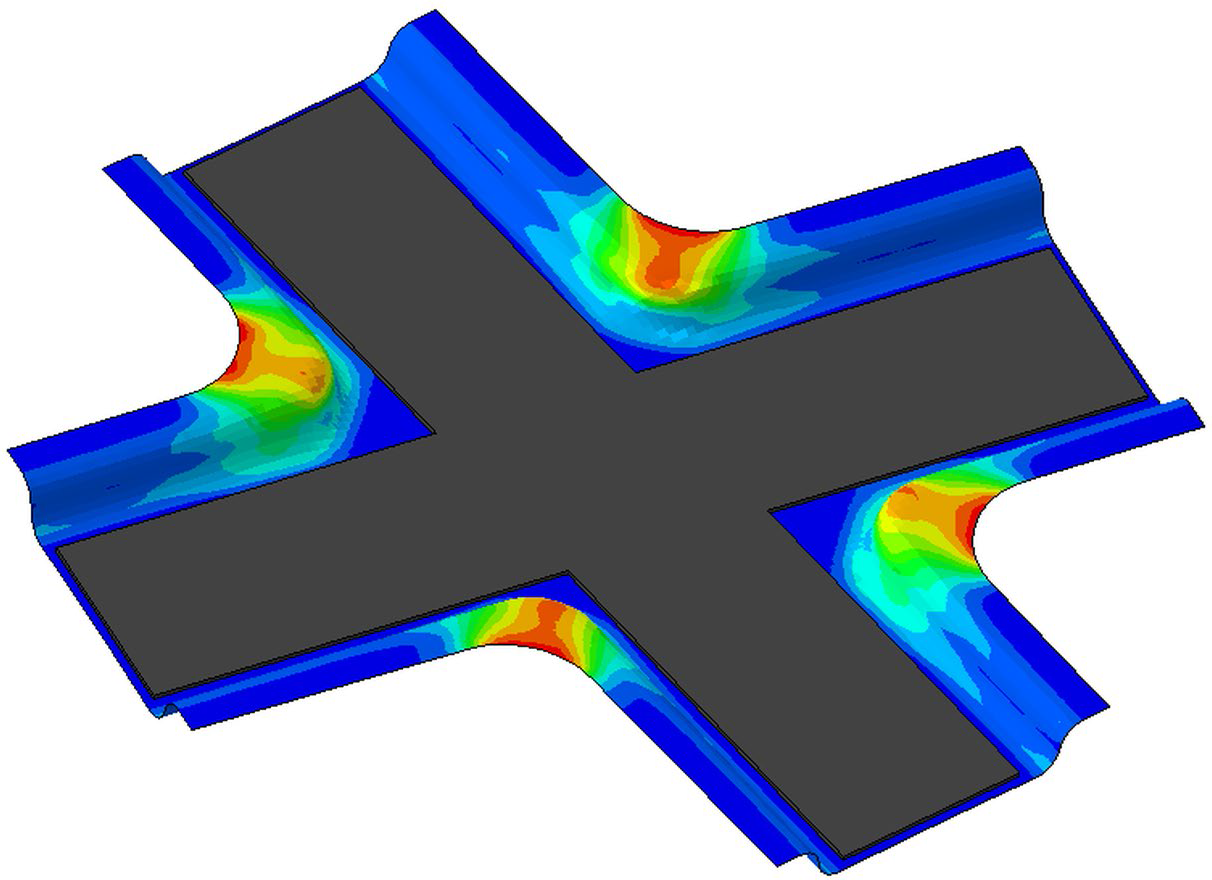Technologies for the efficient production of hybrid CFRP/metal structural components in the automotive sector
The automotive industry in particular is currently placing high expectations on lightweight construction in order to meet environmental requirements. Carbon fiber reinforced plastics with their high specific mechanical characteristics in combination with the good impact properties of steel can meet these expectations. The joint project MAI CC4.0 "HybCar" (FKZ: NW-1705-0013) embedded in the Campus Carbon 4.0 addresses in particular the resource-efficient lightweight construction for the automotive sector, which is to be made possible by the use of metallic substrates and a load-path-compatible use of carbon fibers, taking into account the Industry 4.0 idea. In cooperation with our project partners we are significantly involved in the calculation and efficient production of hybrid CFRP/metal structural components.

